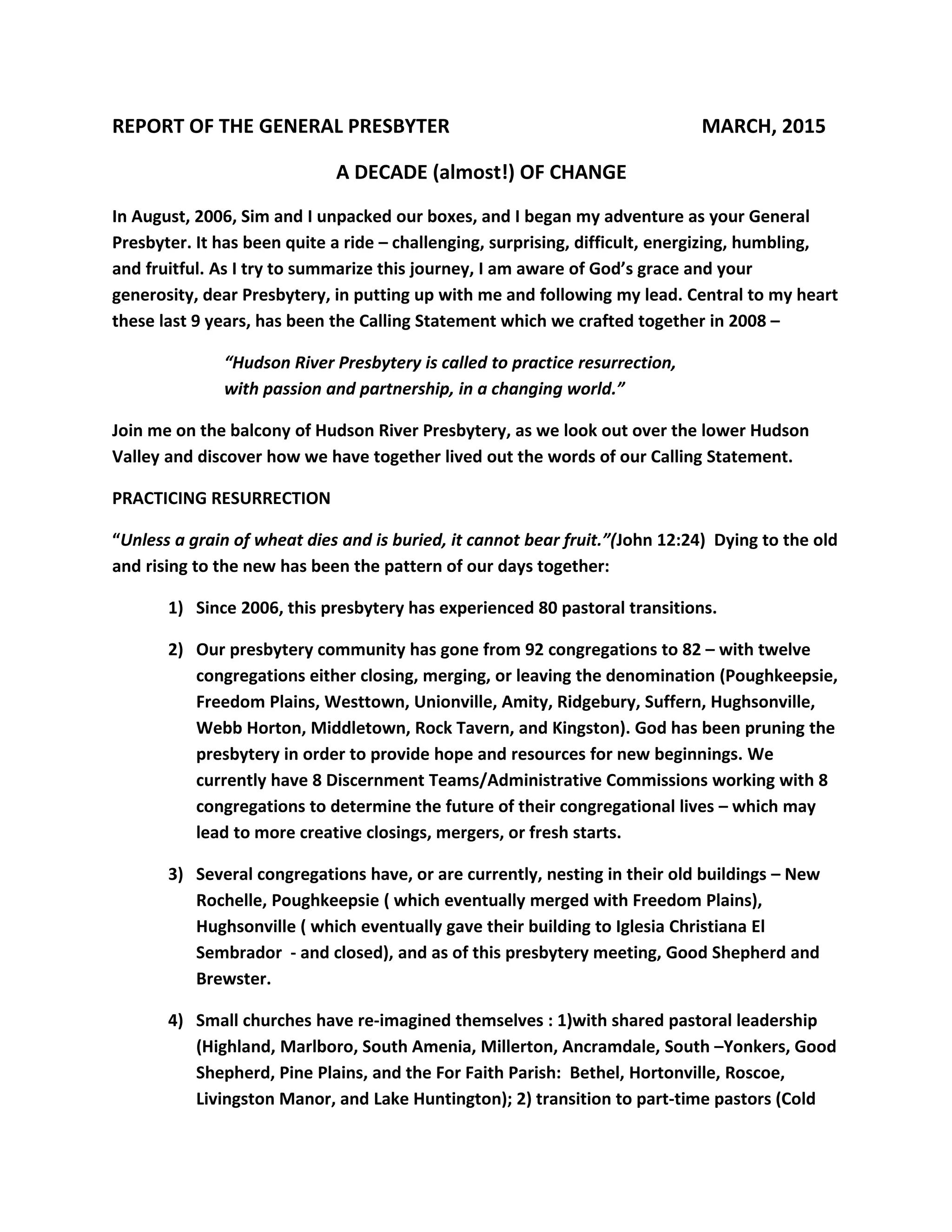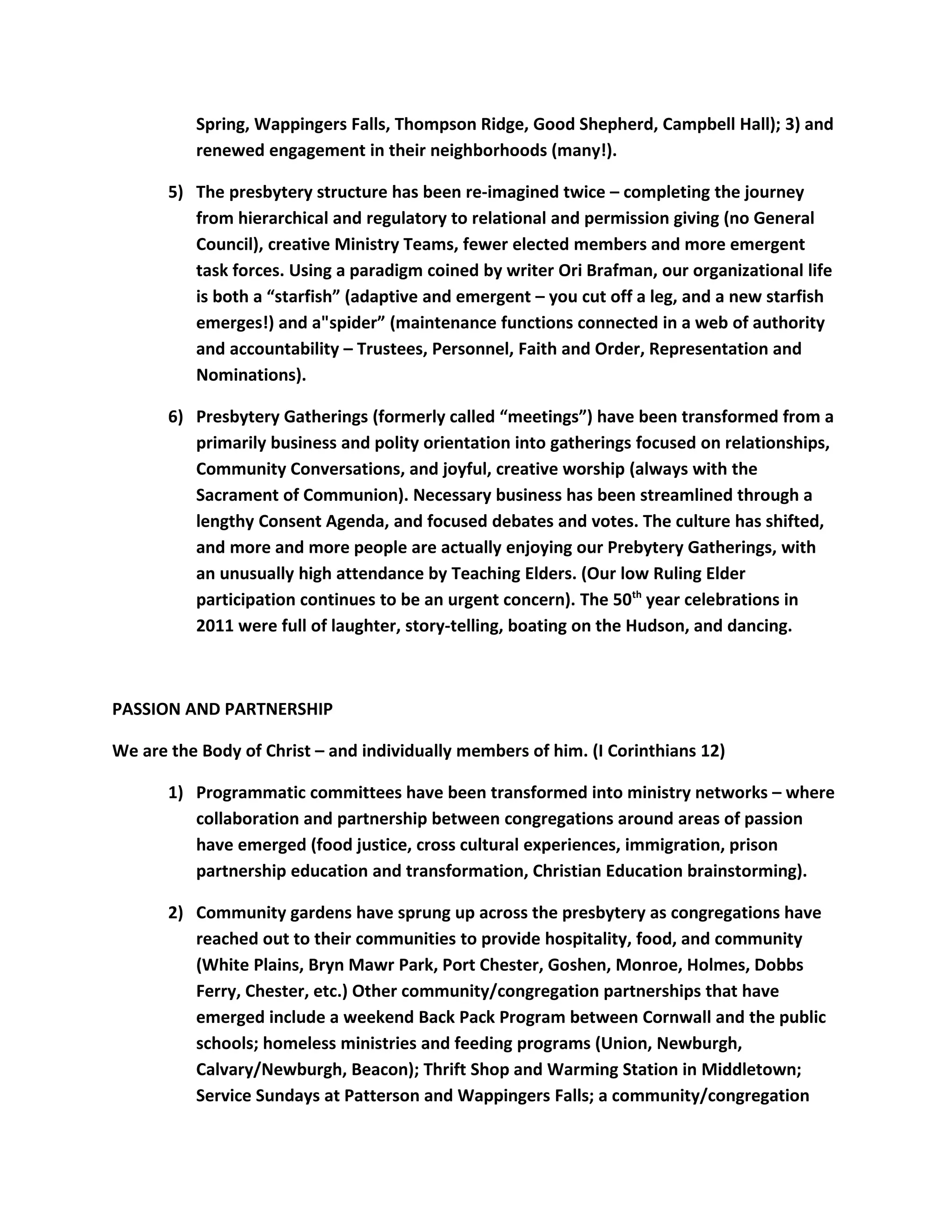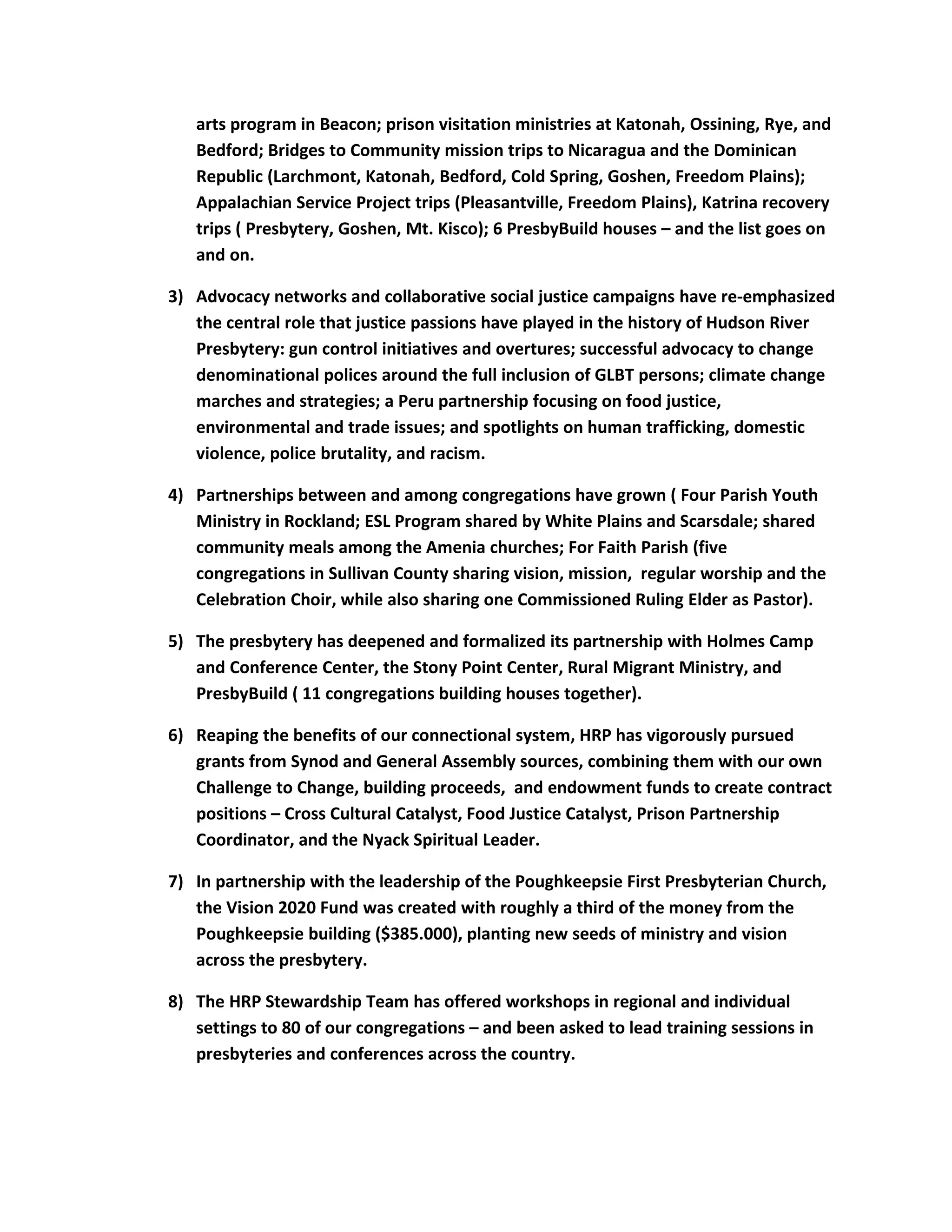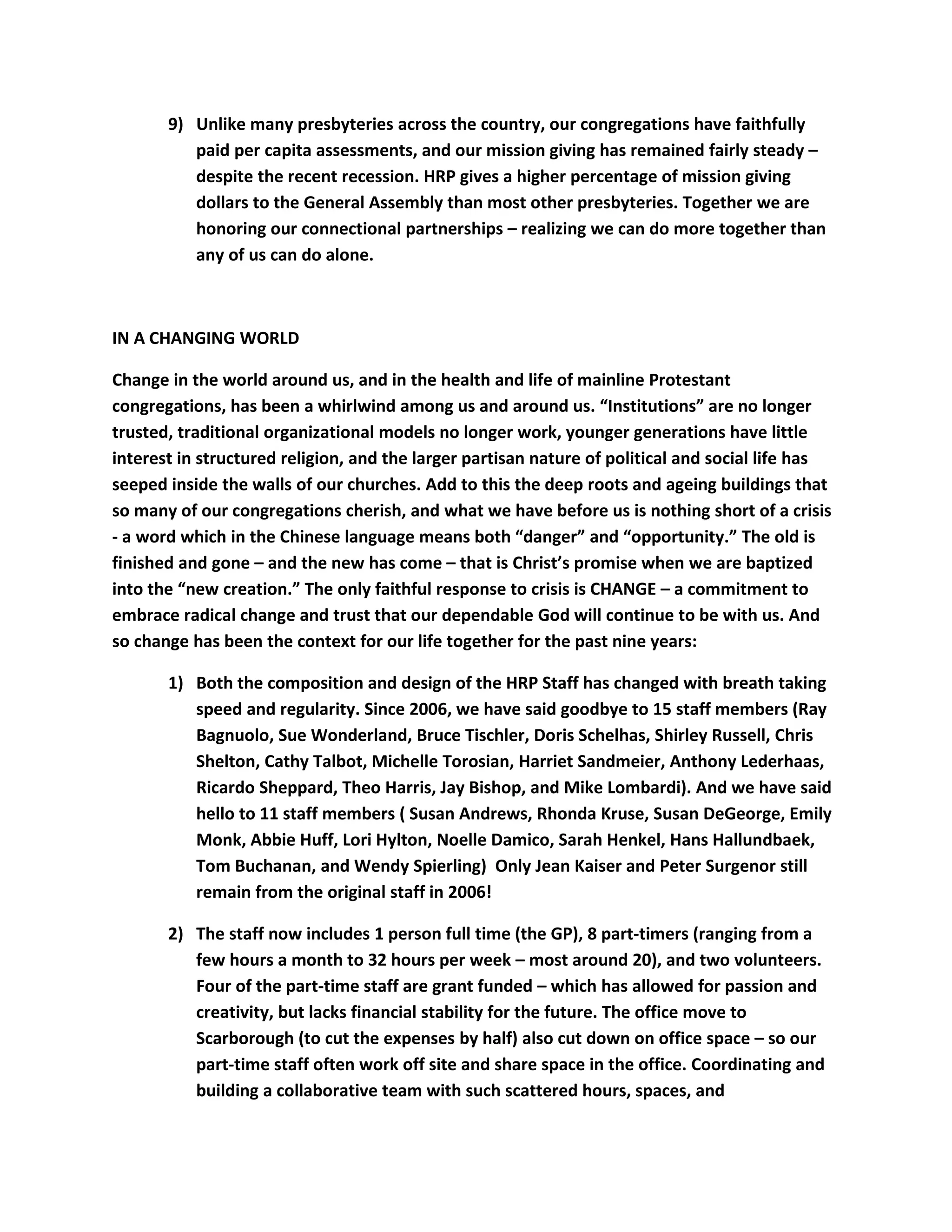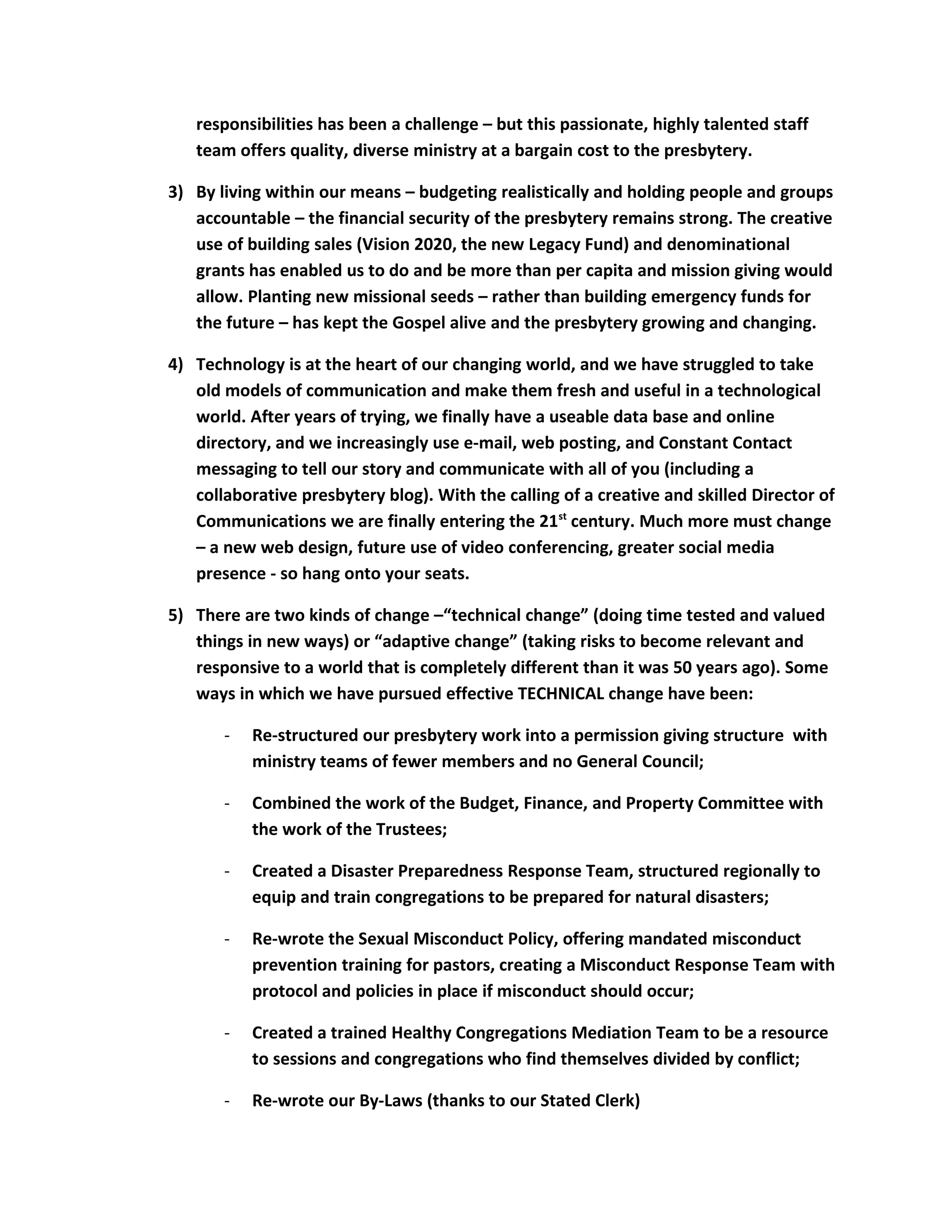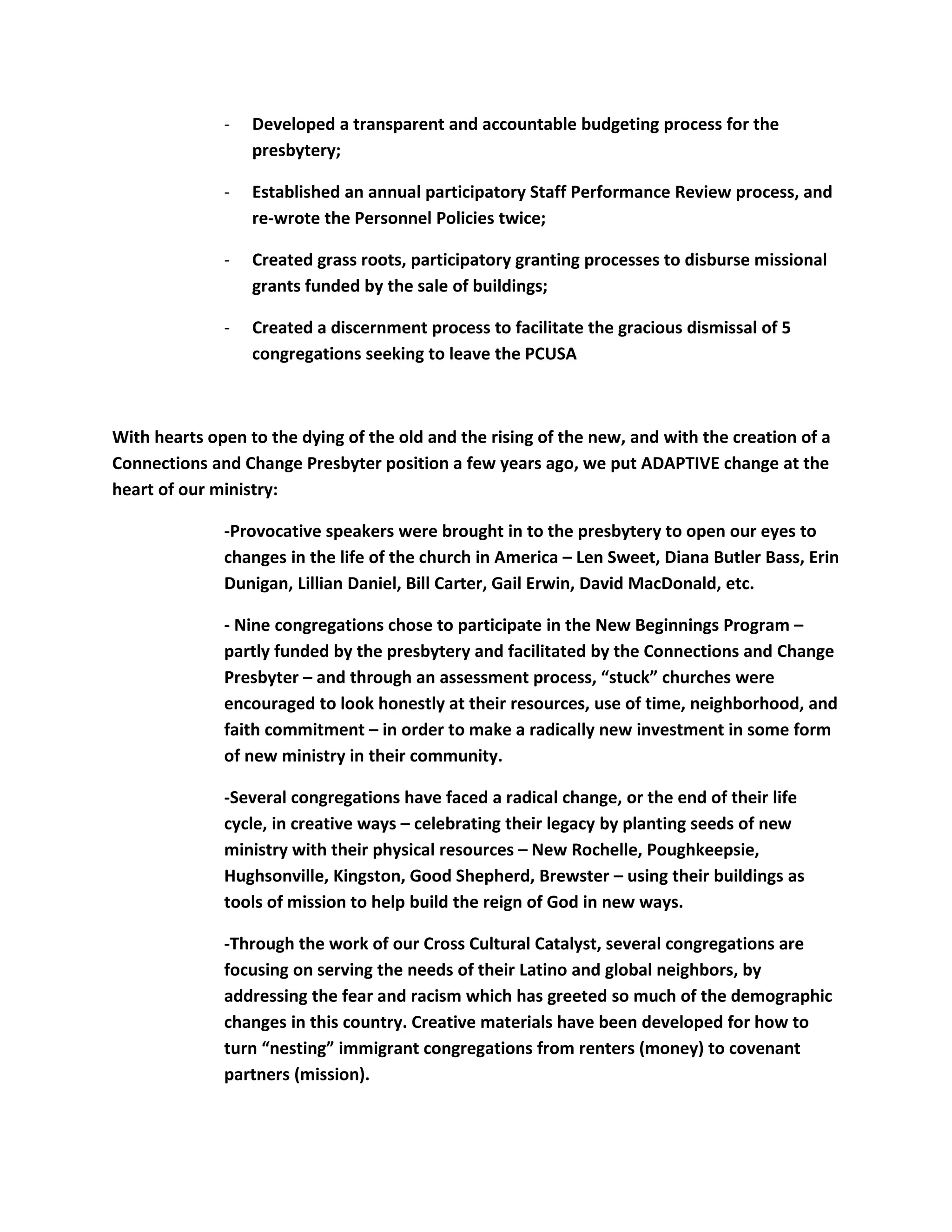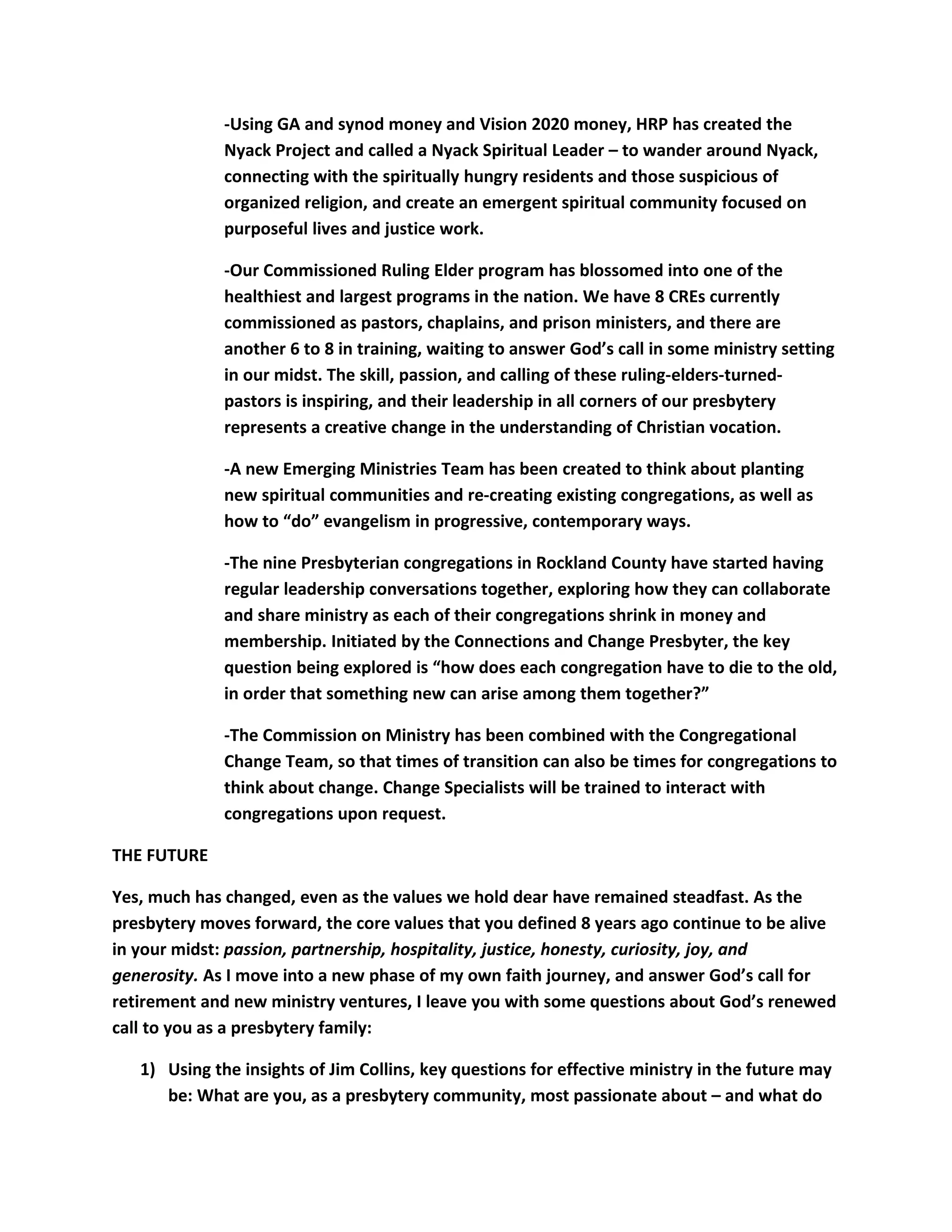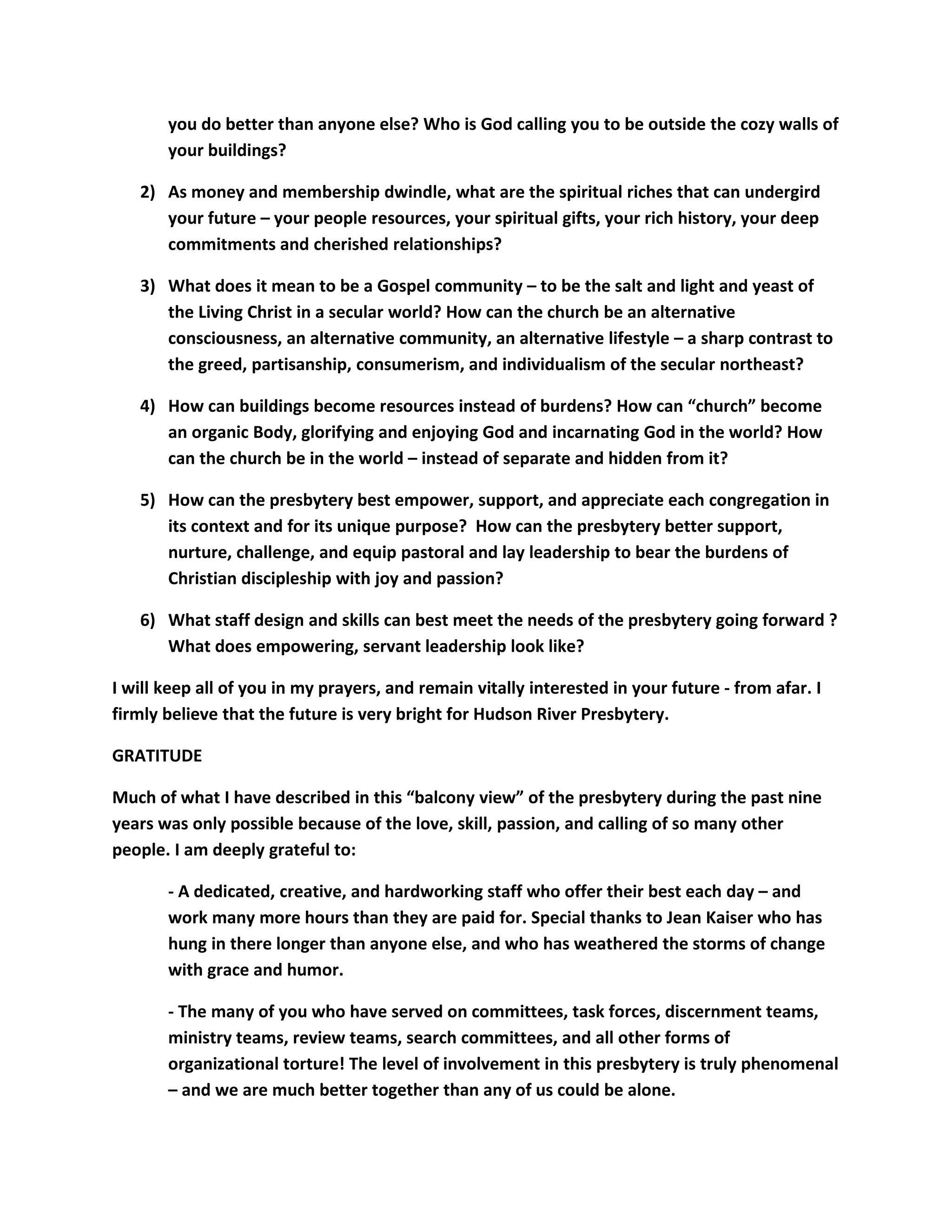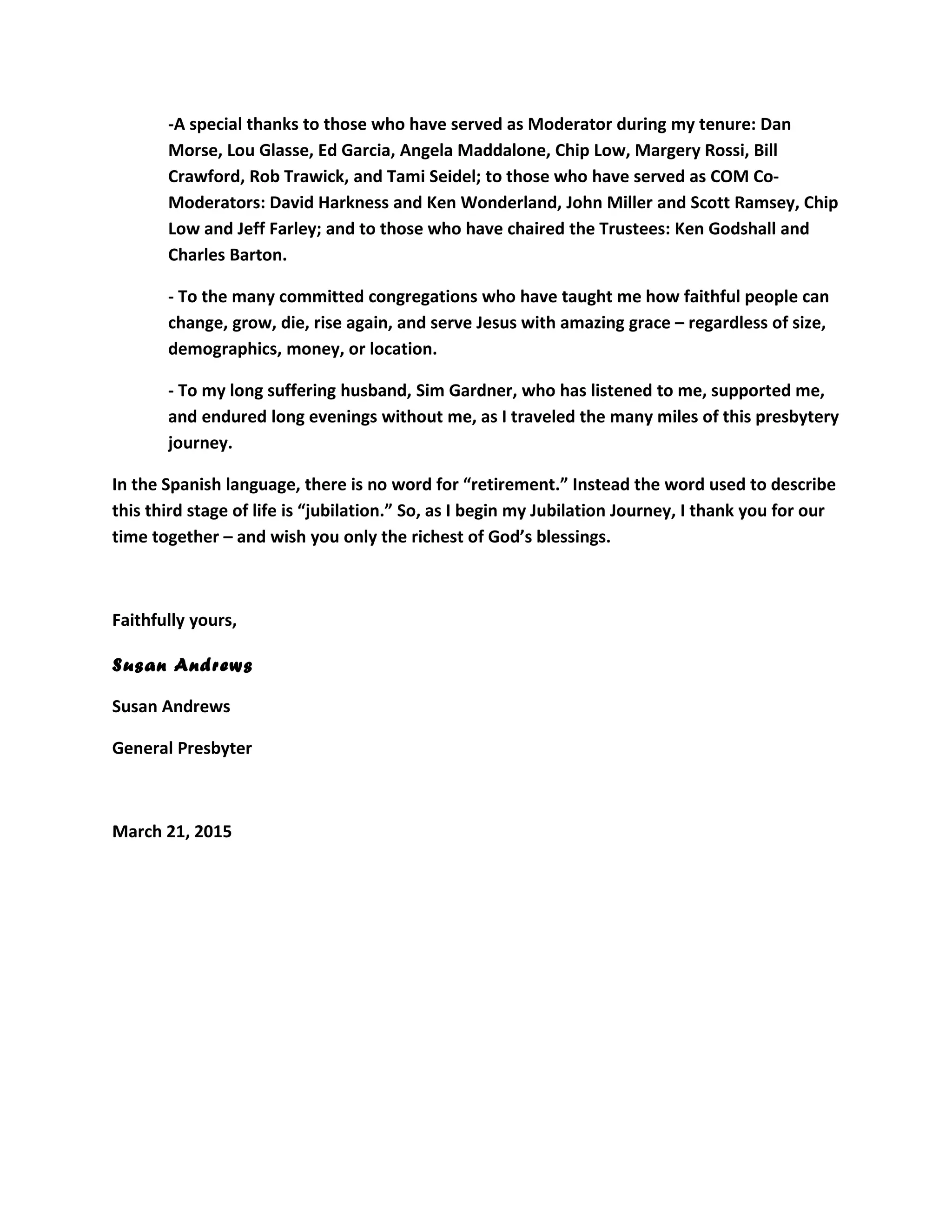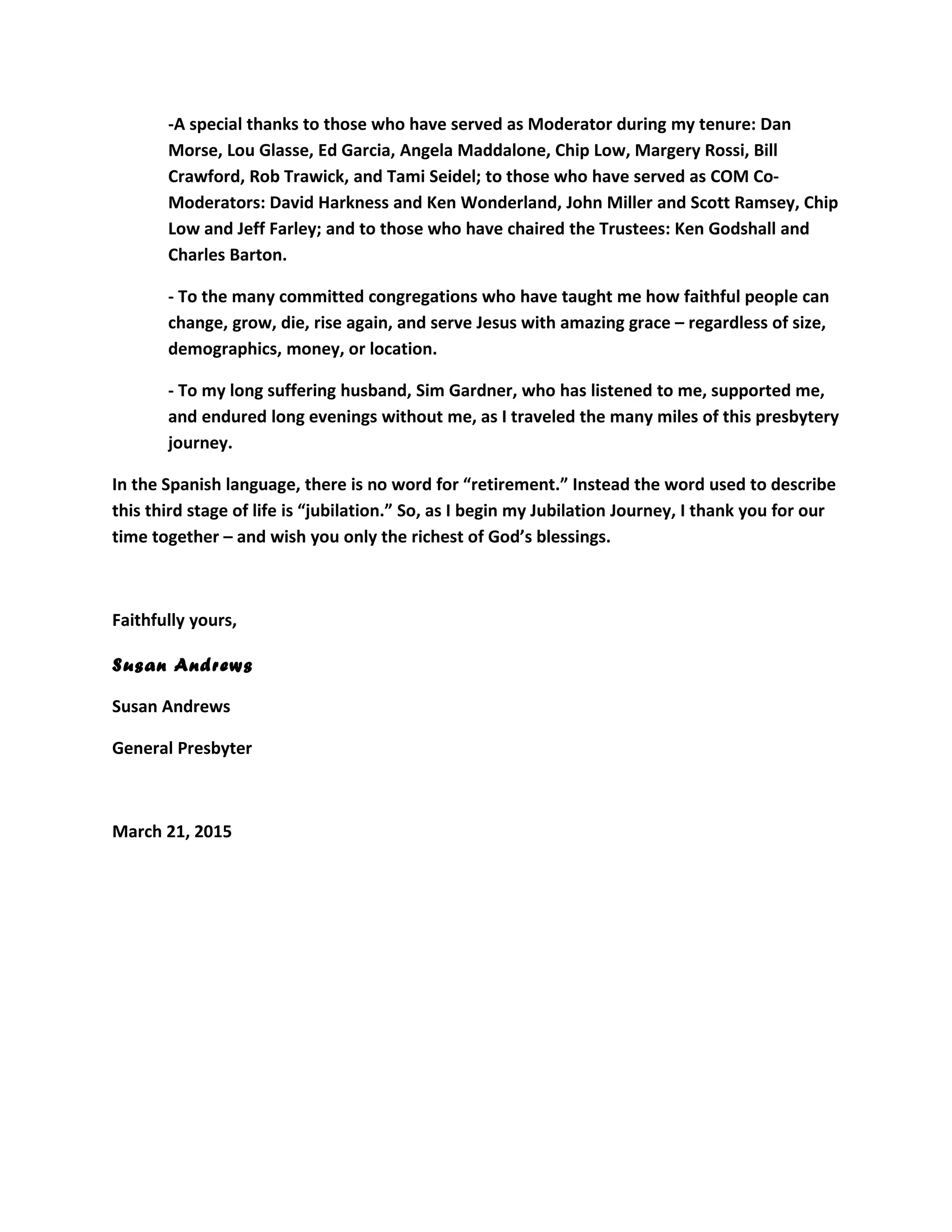This document summarizes the past decade of changes within the Hudson River Presbytery led by the General Presbyter. Key points include:
- The presbytery has experienced 80 pastoral transitions and the closure or departure of 12 congregations while supporting creative new starts.
- Small congregations have reimagined themselves through shared pastoral leadership, part-time models, and community engagement.
- Partnerships and ministry networks have emerged around areas like food justice, education, and advocacy while deepening connections to organizations.
- The presbytery structure and gatherings have been adapted to focus on relationships, community, and streamlining business.
- Significant staff changes occurred while maintaining financial stability through creative funding and living
